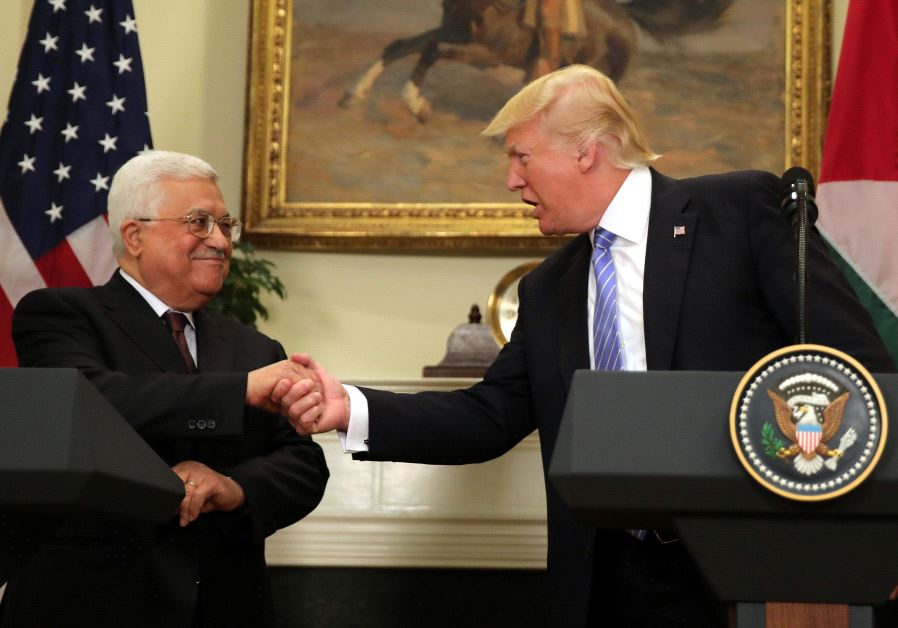Kushner: Trump ‘very fond’ of Abbas, PA’s response to parley ‘hysterical’

Abbas and Trump. (photo credit: REUTERS)
The Palestinian leadership’s reaction to the Bahrain economic workshop was “hysterical and erratic and not particularly constructive,” US senior adviser Jared Kushner said on Wednesday, in a post-Bahrain workshop conference call.
He said that the US will present the next steps in its peace plan as early as next week, as a follow-up to the “Peace to Prosperity” conference held last week in Bahrain.
“They looked very foolish by trying to fight this,” Kushner said during the call geared for Arab journalists in the region, adding that the Palestinian leadership made a “strategic mistake” by boycotting the conference. “Palestinians are starting to see that Israel is not responsible for their problems, it’s their leaders.”
Kushner, a key architect of the Bahrain meeting, said that eventually the Palestinian leadership “will have to step up at some point and show that they want their people to live better lives.”
At the same time, he said, “I have a lot of respect for [PA] President [Mahmoud] Abbas, he’s devoted his life to making peace, he’s suffered some setbacks along the way. I believe in his heart he wants to make peace, and that we can give him an opportunity to try to achieve that.”
Kushner added that US President Donald Trump is “very fond” of Abbas personally, and that the “door is always open” for the Palestinian leadership. The president, he said, “likes him [Abbas] very much personally and, at the right time, if they’re willing to engage I believe that they’ll find that they will have an opportunity.”
Kushner said that certain people around Abbas “are very uncomfortable with the way we’ve approached this, and their natural reaction is to attack and say crazy things.”
Kushner made it clear that the $50 billion economic plan that was presented at Bahrain would not be implemented until it becomes clear what the peace deal will look like. The 60-page political chapter of the plan is not expected to be released until after a new government is formed in Israel following the September election.
“We are talking with some of our partner countries about finding ways to create the right mechanism to potentially implement it, in the event there is progress on the political front,” he said. “What we want to do is finalize it and make it more real.”
Kushner noted that “at some point there will be negotiations on the political issues, and when that happens I think it will give a lot more comfort for these negotiations for people to see that there is a defined, locked-and-loaded economic plan for what could occur after a political breakthrough is reached.”
Kushner hinted that the US political plan might call for the settlement of Palestinian refugees and their descendants in countries where they now live, noting that “Jewish refugees were able to integrate in other societies around the world.”
“Look, you have a situation when this whole thing started where you had 800,000 Jewish refugees that came out of all the different Middle Eastern countries and you had 800,000, roughly, Palestinian refugees,” he said.
“And what’s happened to the Israeli – to the Jewish – refugees, is they have been absorbed by different places whereas the Arab world has not absorbed a lot of these refugees over time,” he said. “I think that the people of Lebanon would love to see a resolution to this issue, one that is fair. And I also think that the refugees, the Palestinian refugees who are in Lebanon, who are denied a lot of rights and who, you know, don’t have the best conditions right now would also like to see a situation where there is a pathway for them to have more rights and to live a better life.”
Join Jerusalem Post Premium Plus now for just $5 and upgrade your experience with an ads-free website and exclusive content. Click here>>






Comments are closed.